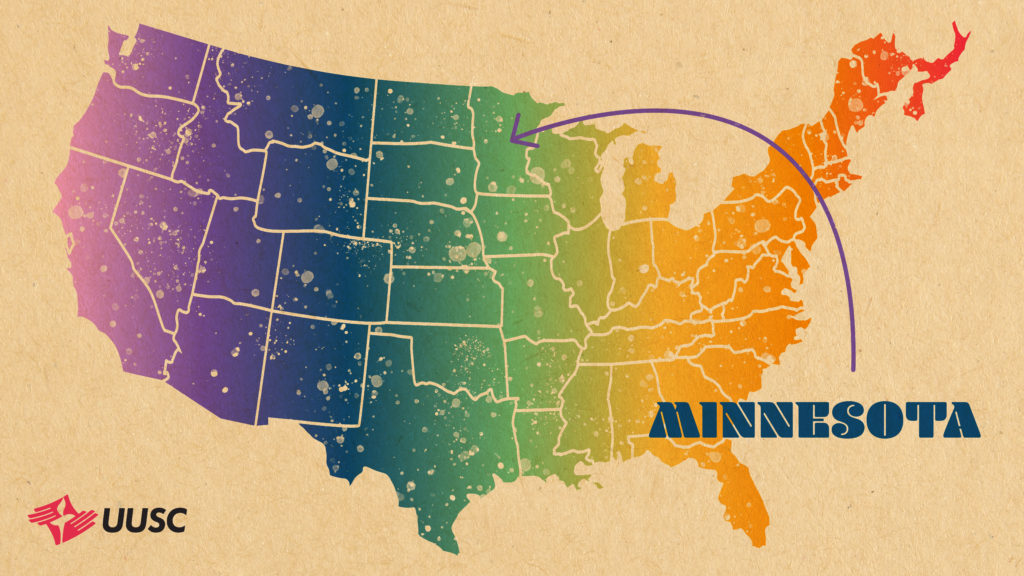The Unitarian Universalist Service Committee advances human rights through grassroots collaborations.
UUSC Timeline: Our History of Advancing Human Rights
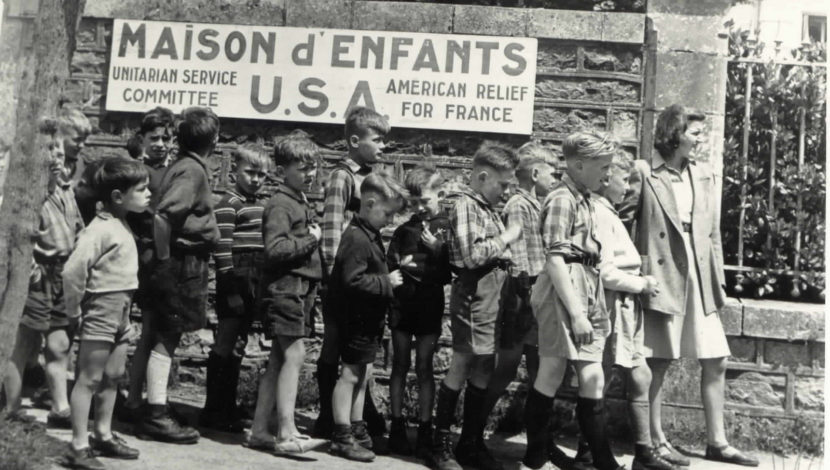
UUSC carries forward a legacy built over 80 years of making tangible progress to advance human rights, dismantle systems of oppression and uplift the inherent dignity of people around the world.
- 1939: Rev. Waitstill and Martha Sharp traveled to Europe under the sponsorship of the American Unitarian Association to help refugees escape Nazi persecution.
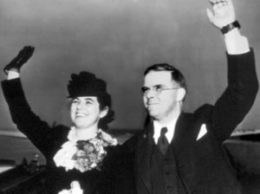
- 1940: Unitarian Service Committee established to continue and formalize this humanitarian service. Volunteers distribute clothing parcels to refugees at the Paris Unitarian Service Committee office.
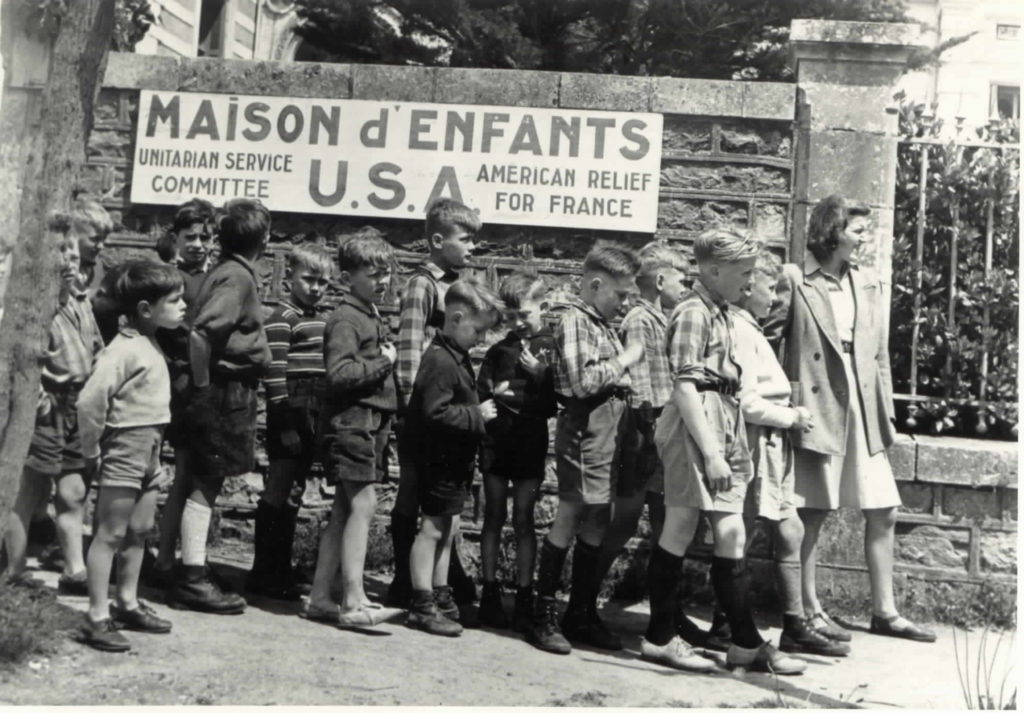
- 1945: Universalist Service Committee founded to support relief work in Europe.
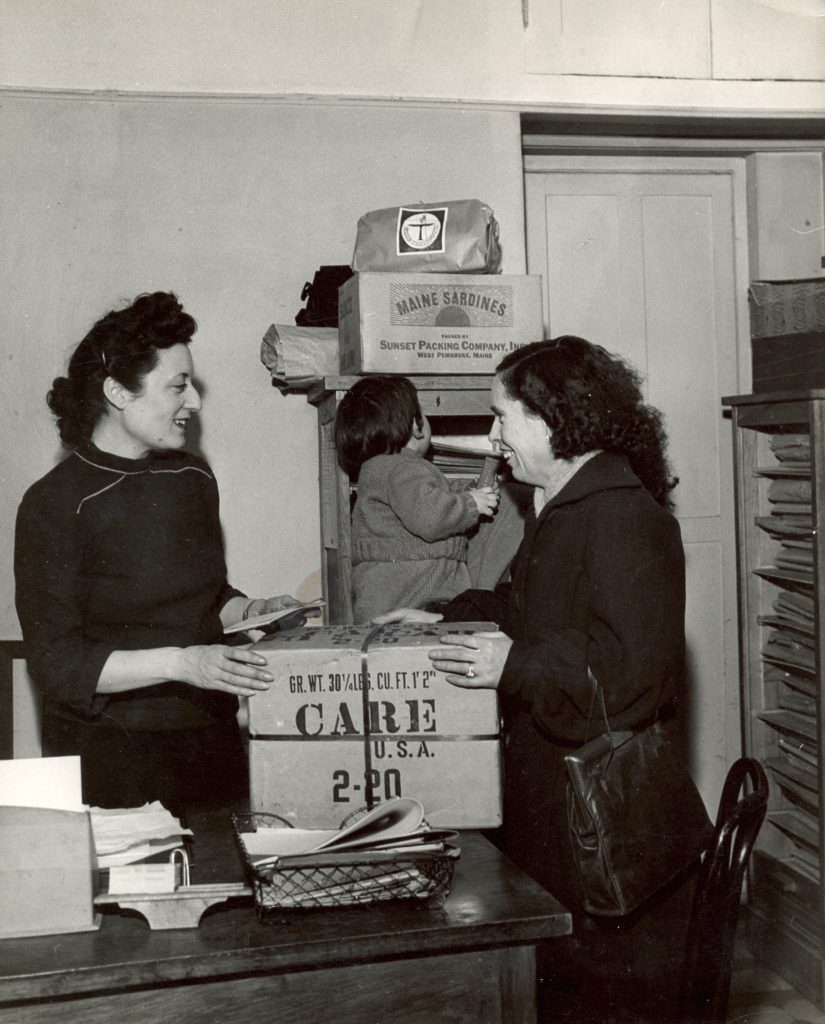
- 1947: The Texas Migrant Workers Project is founded to provide childcare, education, and nutrition to exploited communities.
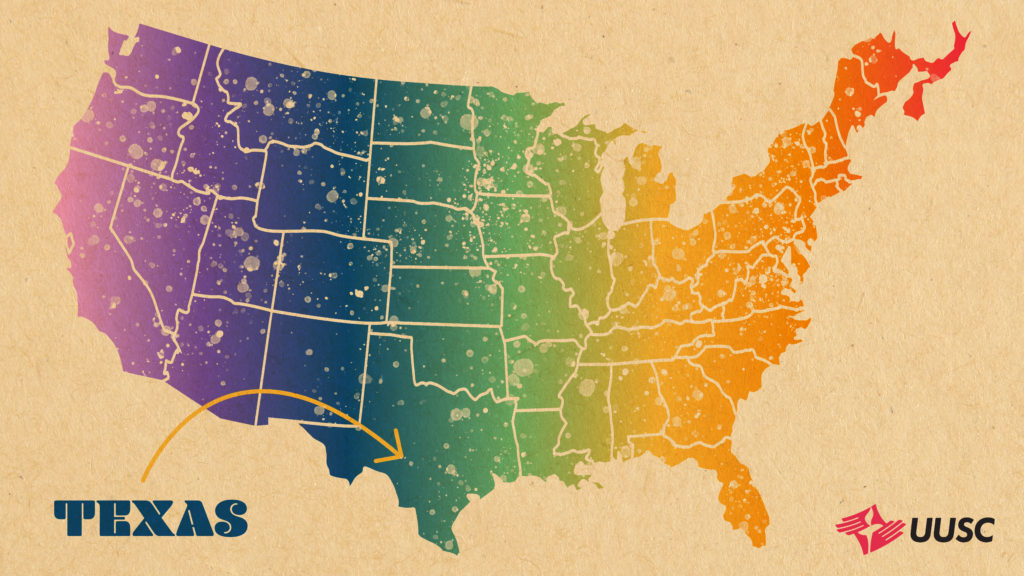
- 1954: A social-work education program is established in Korea.
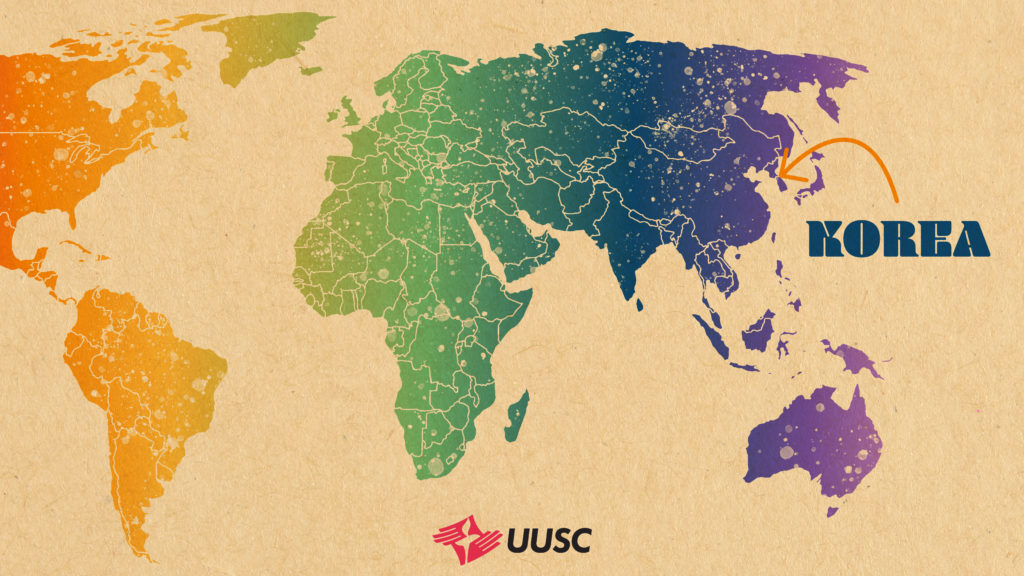
- 1954: The Navajo Community Center is founded in Gallup, N.M., to provide social services and education to at-risk residents.
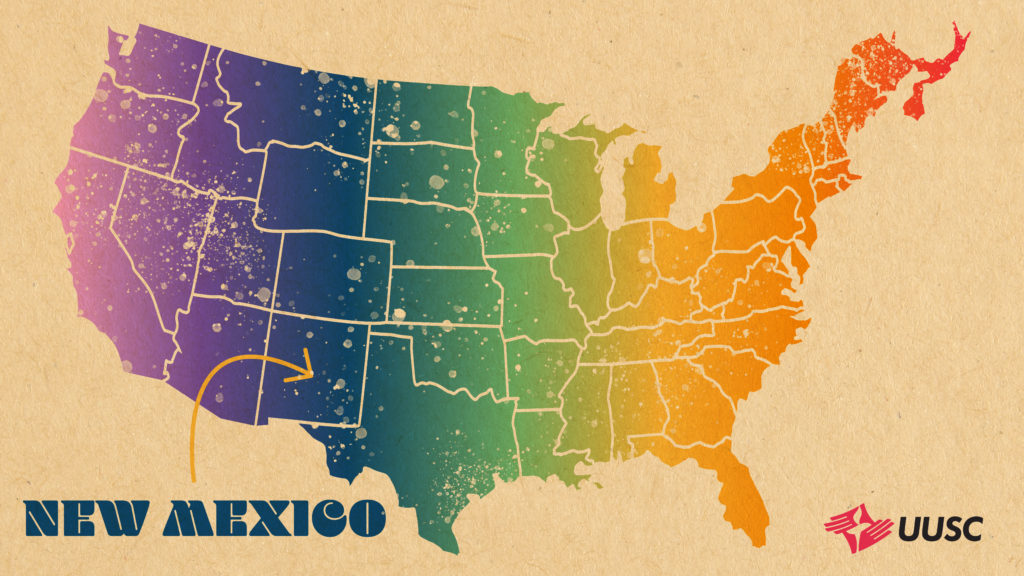
- 1955: A relief project, which will last through the 1960s, is established in Vienna to help refugees fleeing the short-lived Hungarian Uprising.
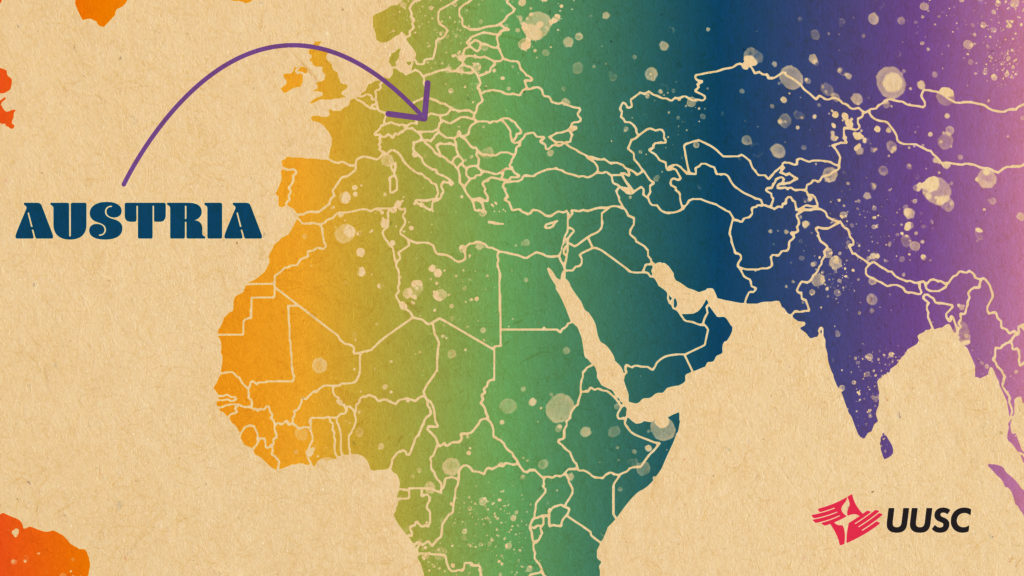
- 1958: A health and community development project is established in Nigeria.

- 1960: Desegregation projects are launched in Georgia and Florida as Unitarian Universalists take a prominent role in the civil rights movement of the 1960s.
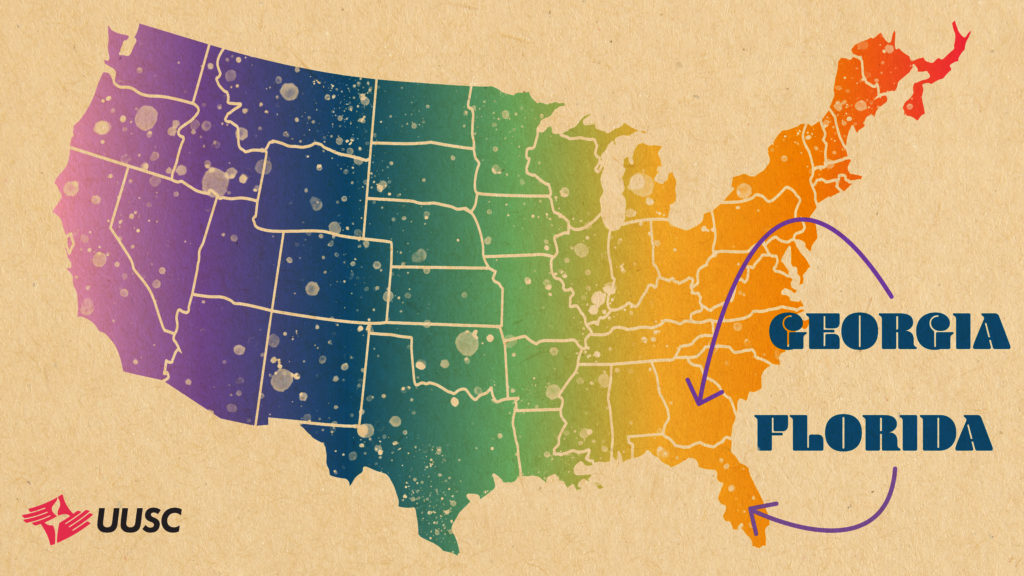
- 1963: Unitarian Service Committee merged with the Universalist Service Committee to form UUSC.
- 1966: UUSC offers maternal and child health as well as family planning services in Haiti.
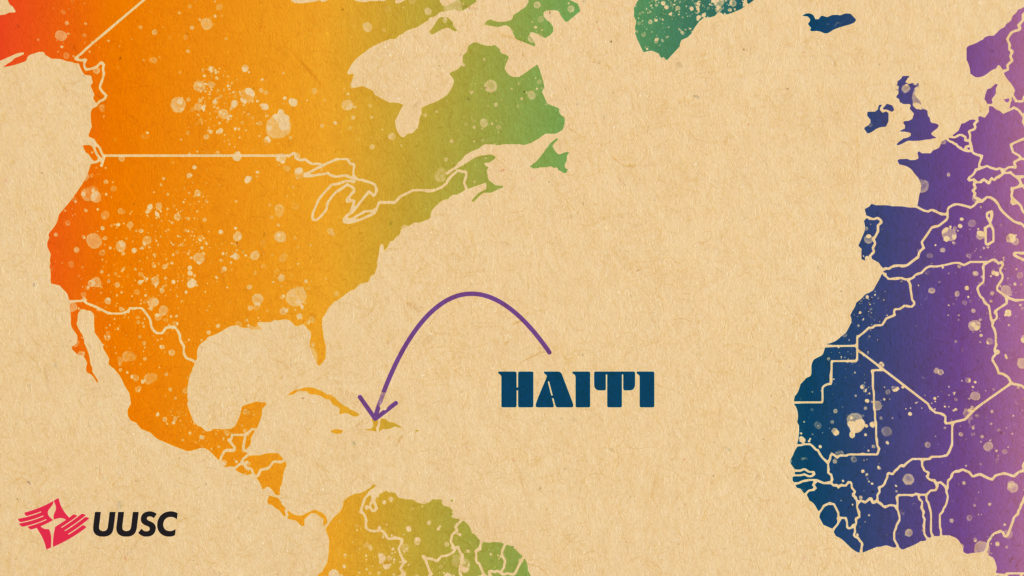
- 1970: UUSC launches a community health program in Togo.
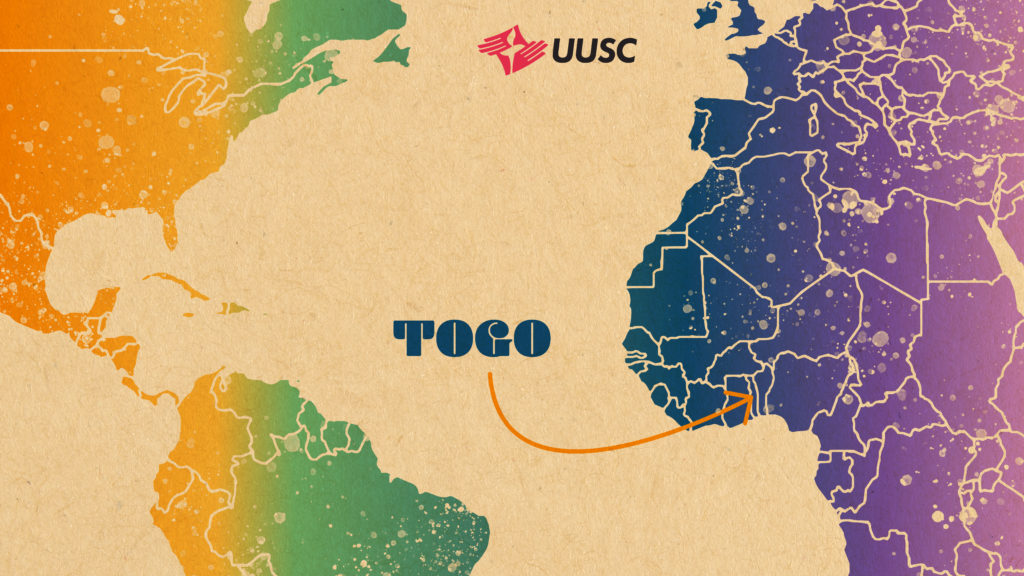
- 1973: UUSC helps Salvadoran clergy publish a newsletter offering self-help and literacy skills to low-income communities.
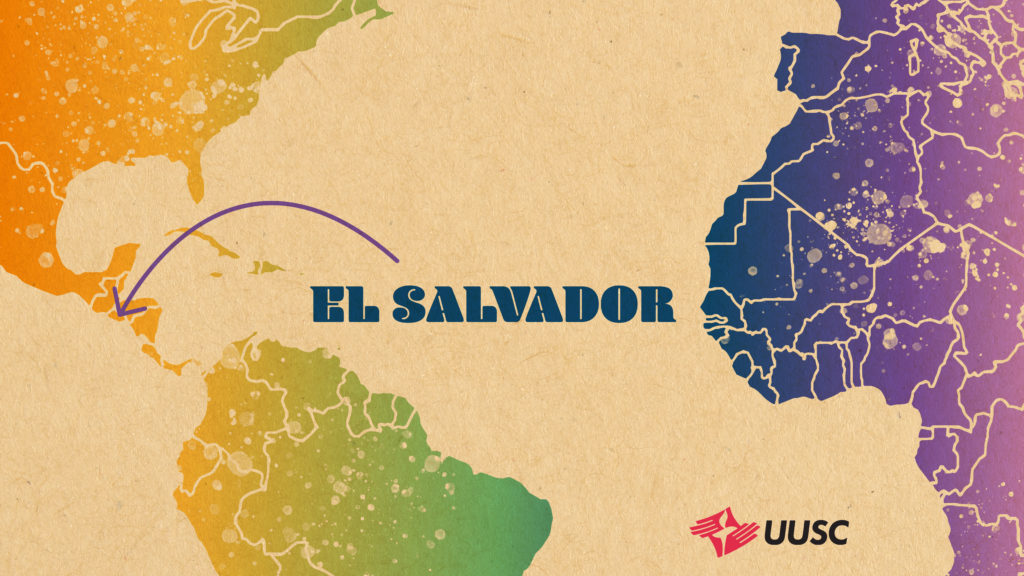
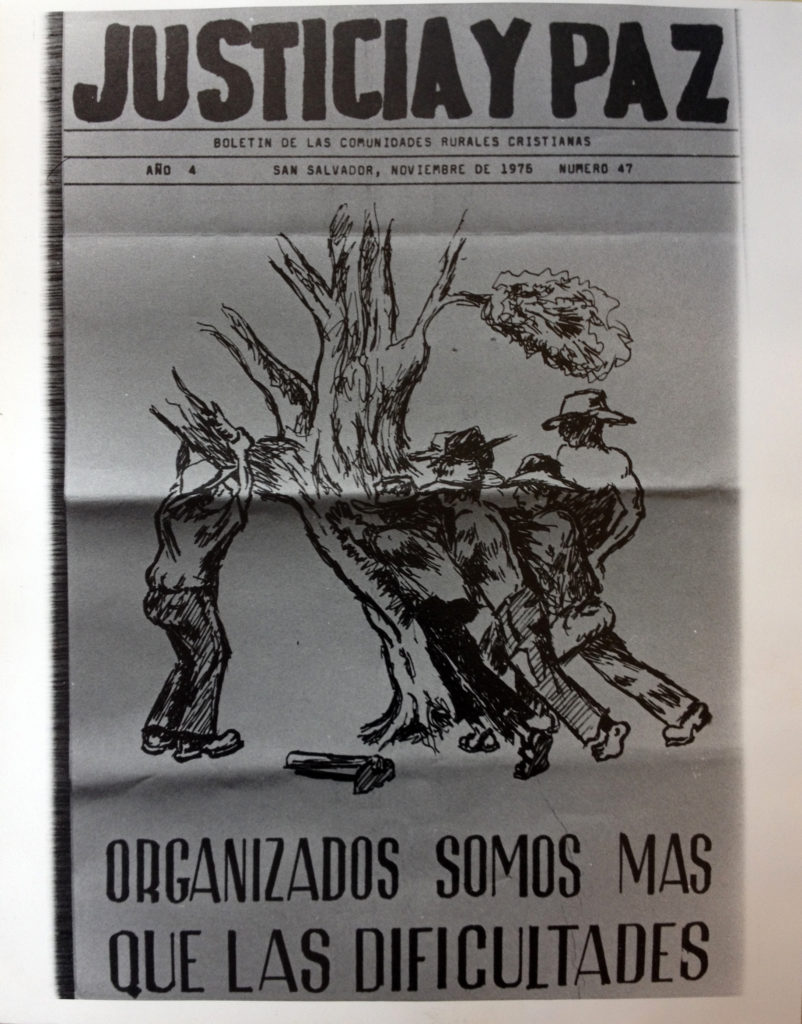
- 1977: UUSC testifies before a Congressional committee about human rights violations in El Salvador. A year later, UUSC sponsors the first of 20 Congressional fact-finding tours of the country.

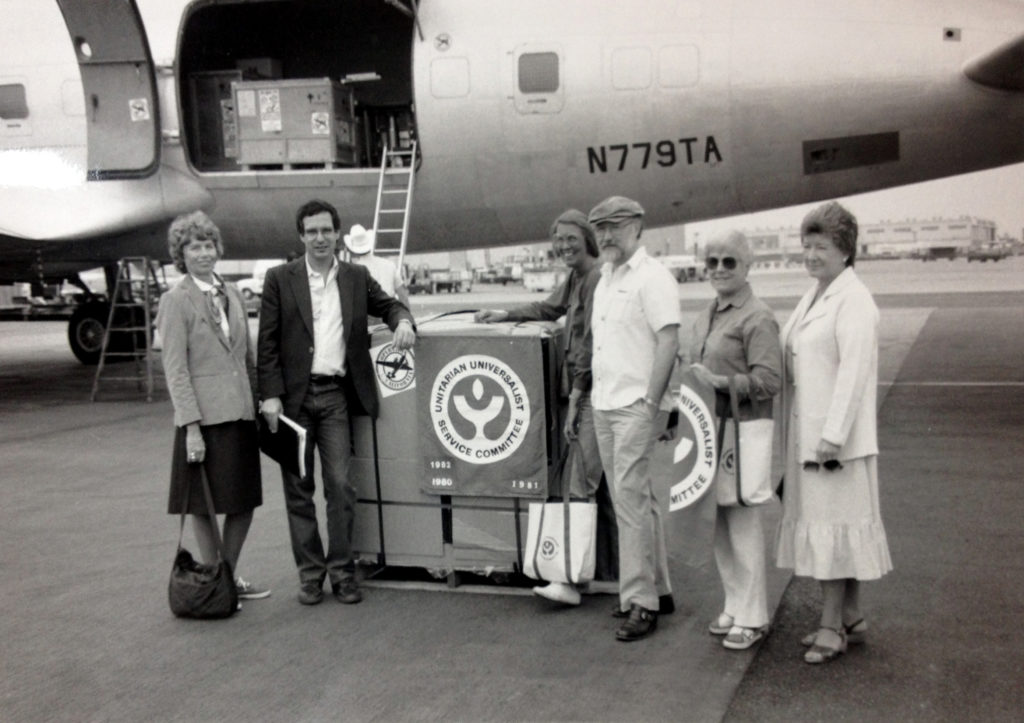
- 1980: UUSC organizes the first Central American Encuentro (Encounter) for rural community development workers and organizers from Costa Rica, Guatemala, Honduras, and El Salvador to exchange information on economic, political, and social issues, and to form a regional support network.
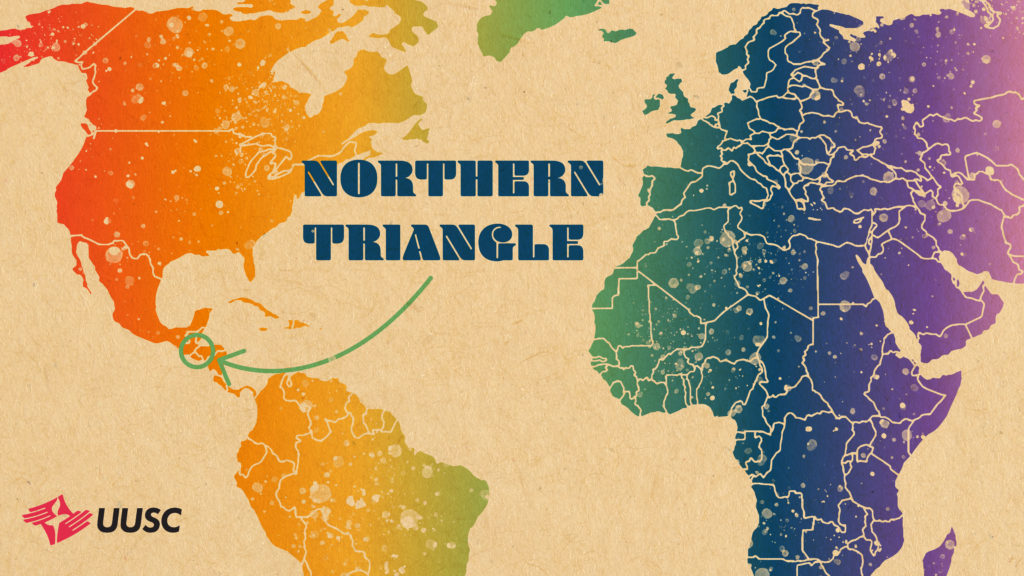
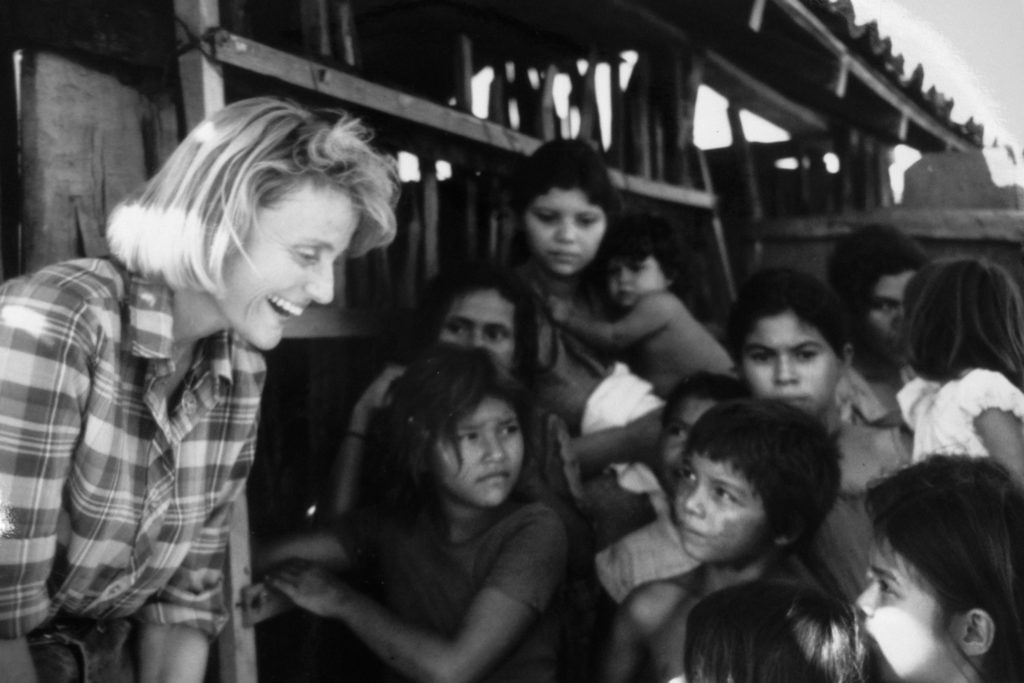
- 1984: Famine in Ethiopia spurs UUSC to appeal for emergency funds long before the story reaches U.S. television.
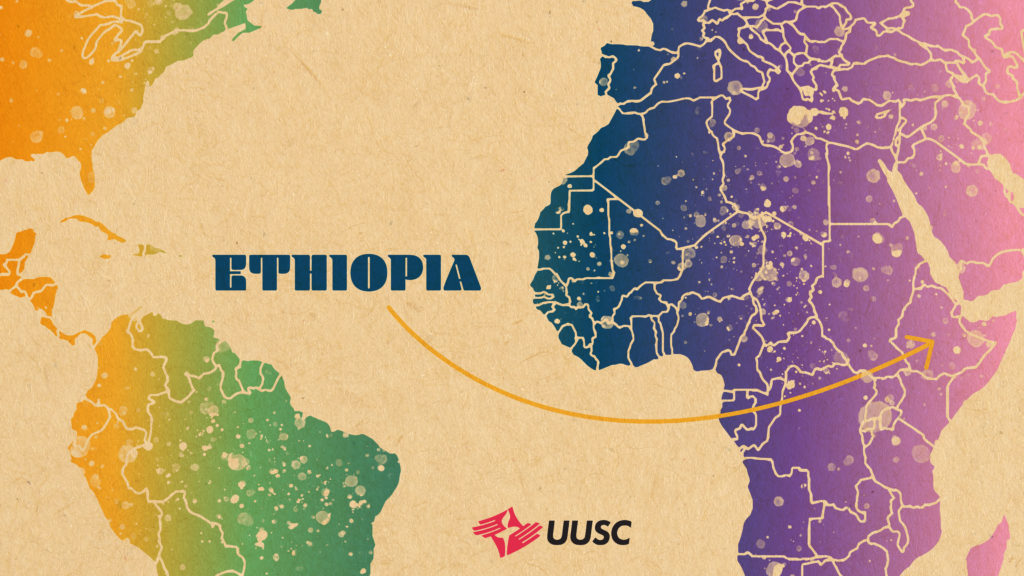
- 1985: UUSC publishes A Journey to Understanding: Central America, a comprehensive study and action guide aimed to fuel UU involvement in Central American migrant justice.

- 1986: UUSC begins sponsoring health clinics in Nicaragua.

Airlift of medical supplies to Nicaragua – June 1983.
- 1989: UUSC launches Promise the Children, a new program addressing the needs of children in the United States.
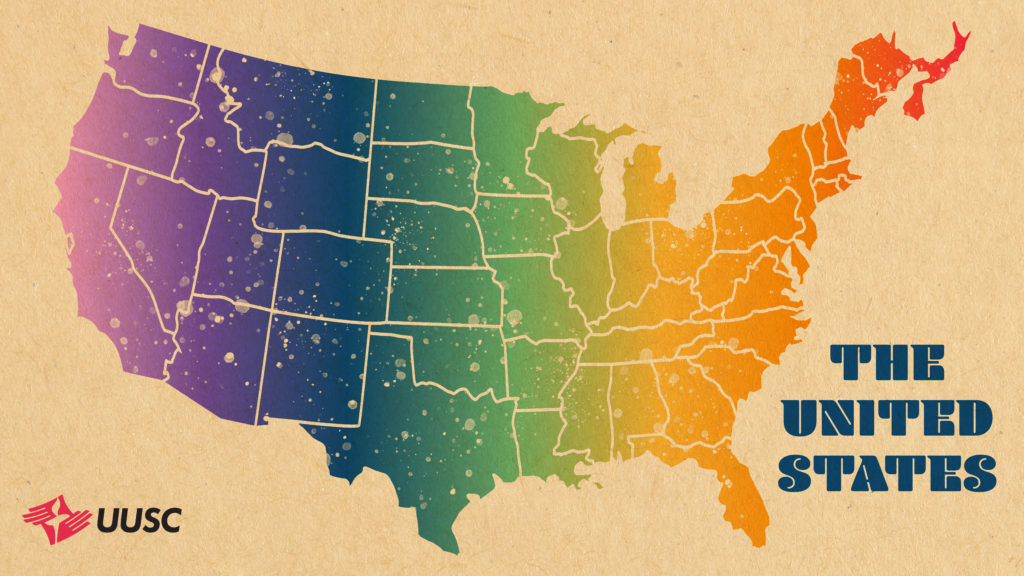
- 1992: UUSC responds to Los Angeles riots sparked by the first verdict in the Rodney King trial by establishing an Urban Emergency Fund.
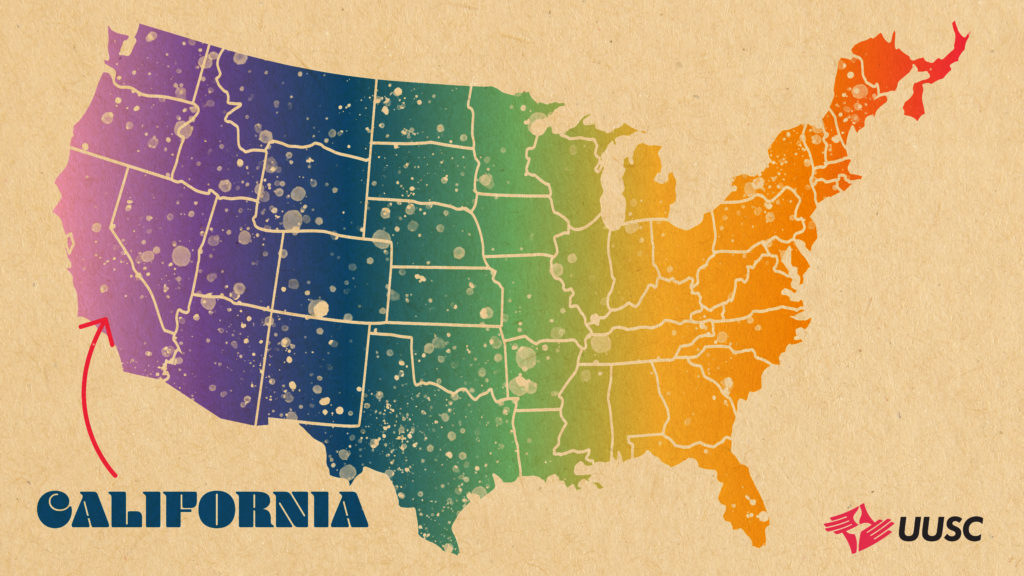
- 1992: UUSC celebrates the signing of peace accords – marking the end of a 10-year civil war in El Salvador – after organizing more than 20 congressional delegations to the war-torn area.

- 1994: UUSC sends emergency medical equipment to Rwanda and begins a long-term relationship with grassroots groups working to bring peace to the region.
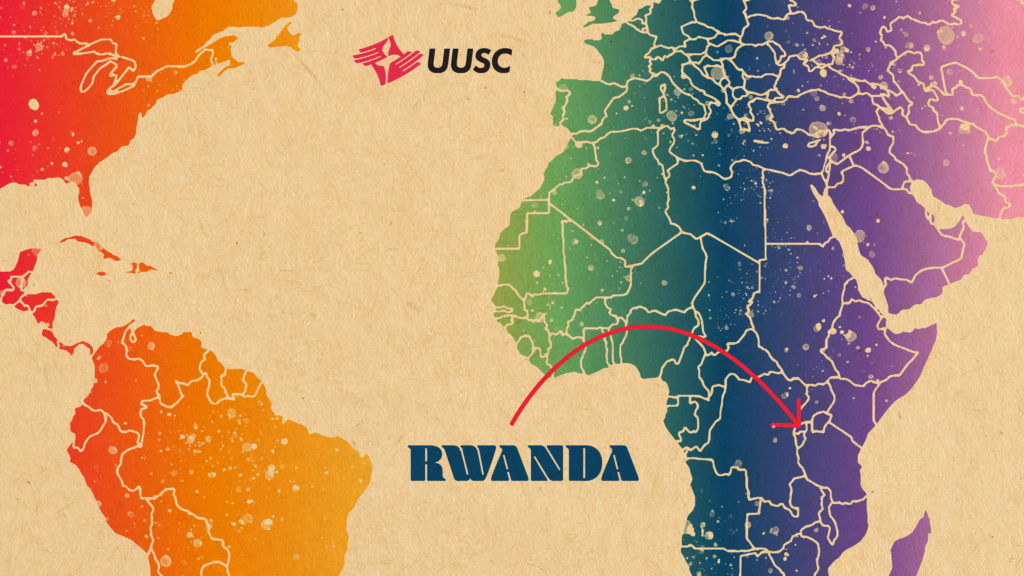
- 1997: UUSC advocates on behalf of human rights groups in Mexico to make the U.S. government aware of the persecution of these organizations and the populations they serve.
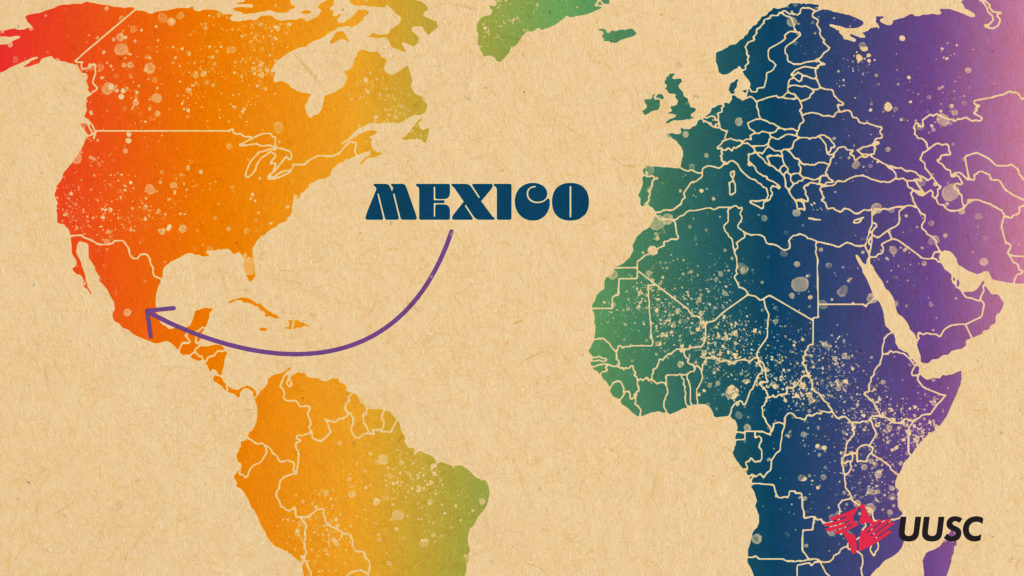
- 2003: UUSC leads a delegation to Guatemala to monitor national elections and witnesses the defeat of former dictator General Efraín Ríos Montt.
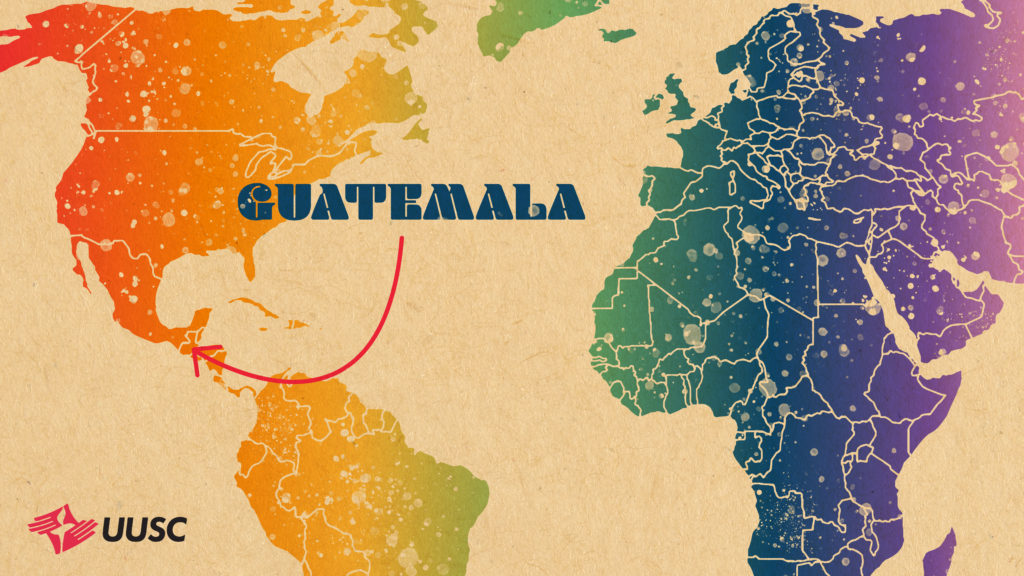
- 2005: The Stop Torture Permanently (STOP) campaign conducts advocacy efforts to end U.S.-sponsored torture and mobilizes thousands of activists for a rally in Washington.
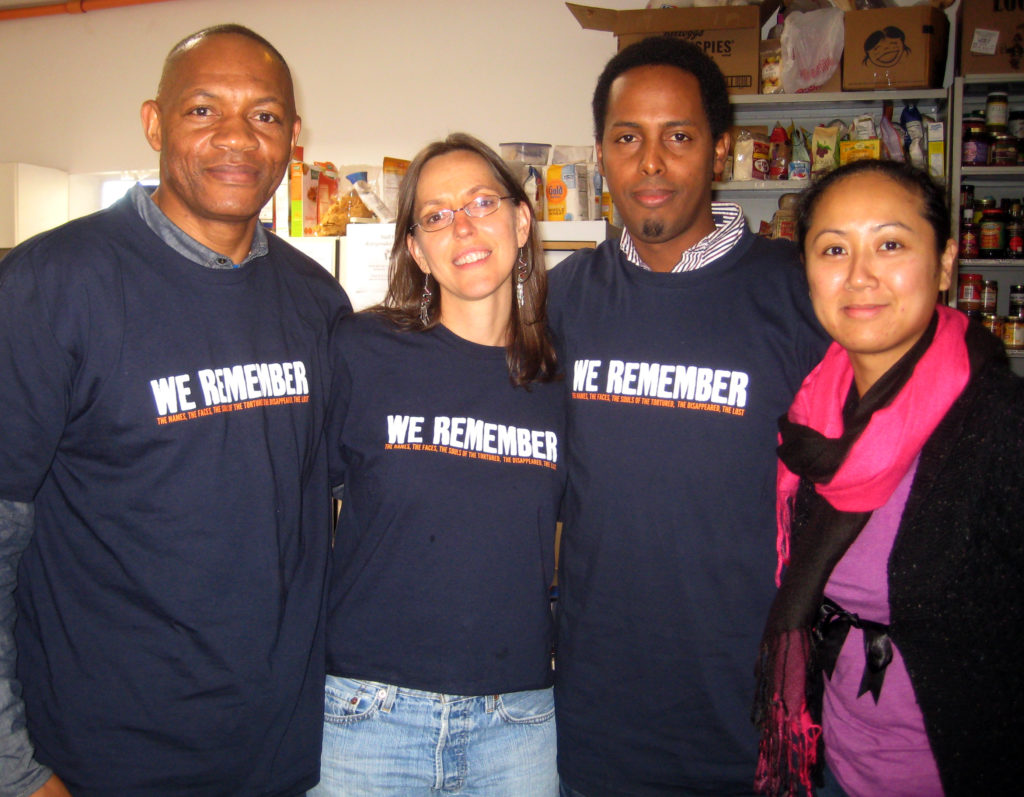
- 2006: UUSC’s work for a living wage helps win ballot victories in six states and leads to the first increase in the federal minimum wage in 10 years.

- 2007: The Drumbeat for Darfur campaign is launched, creating an advocacy list of several thousand activists and collaborating with other anti-genocide organizations to help end the genocide in the Darfur region of Sudan.
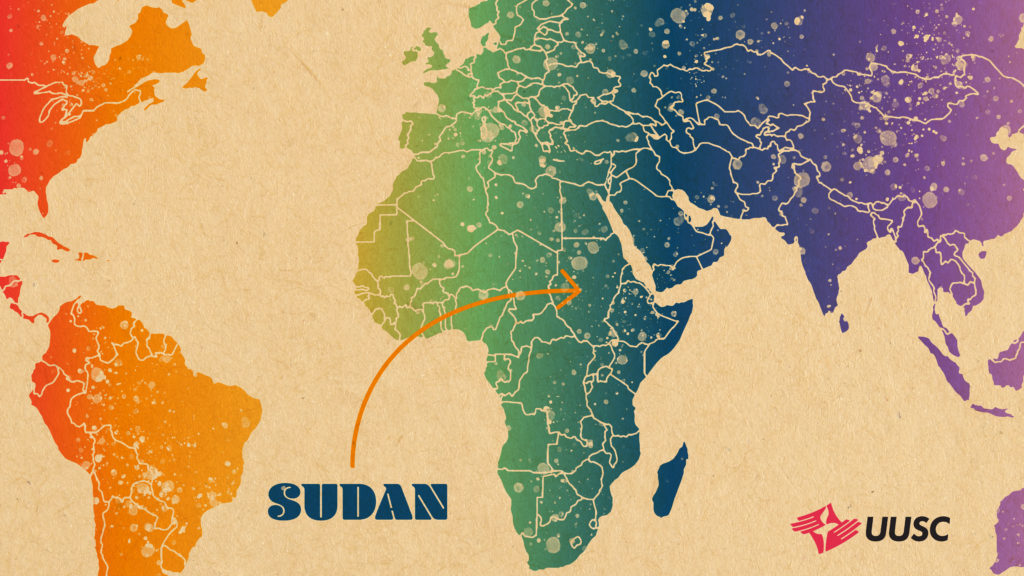
- 2007: UUSC begins a six-year long project in Guatemala to hold the Goldcorp mining company accountable for human rights violations, including water contamination and skin diseases caused by toxic chemicals.
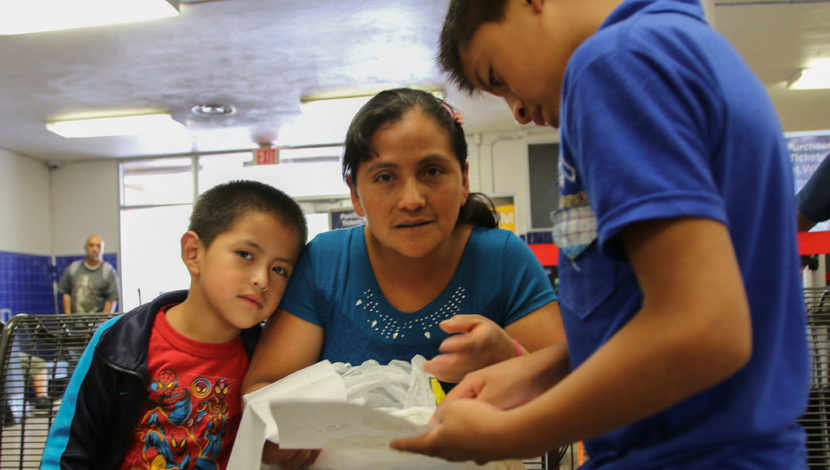
- 2008: UUSC travels to Kenya to investigate a political and humanitarian crisis following the disputed presidential election, a mission that has developed into a lasting presence in that country.
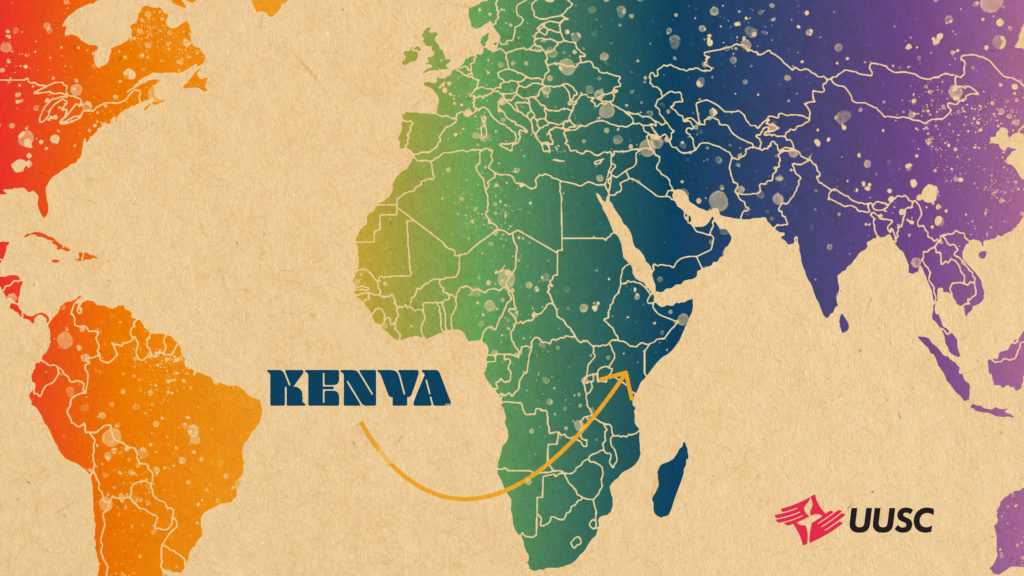
- 2009: UUSC begins working in Uganda to help people displaced by war return home to rebuild their villages, livelihoods, and culture.
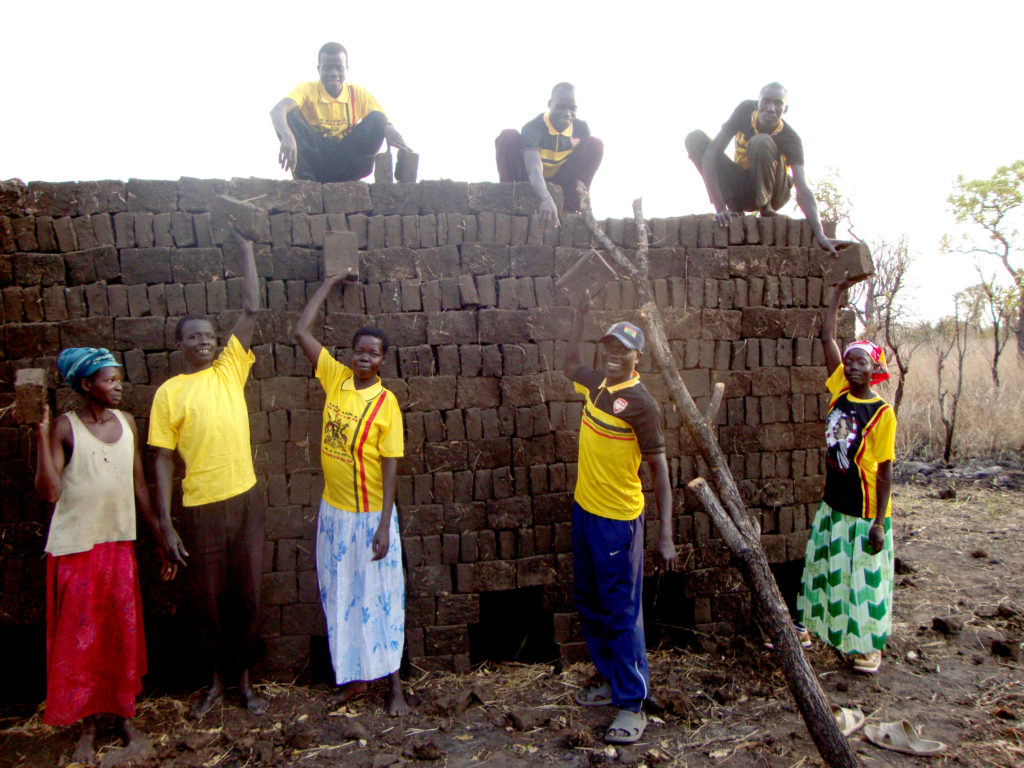
- 2010: After a powerful earthquake devastates Haiti, UUSC launches immediate relief operations and begins planning for a long-term recovery program.
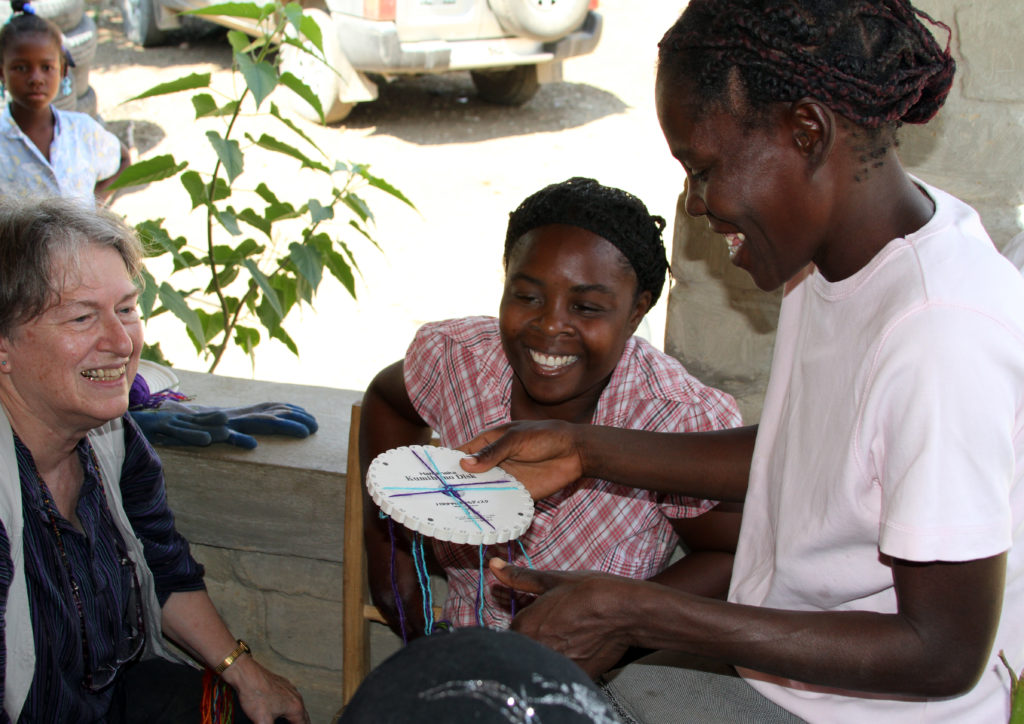
- 2010: Assists with a case ordering the Guatemalan government to guarantee the human right to water before the Inter-American Commission for Human Rights.
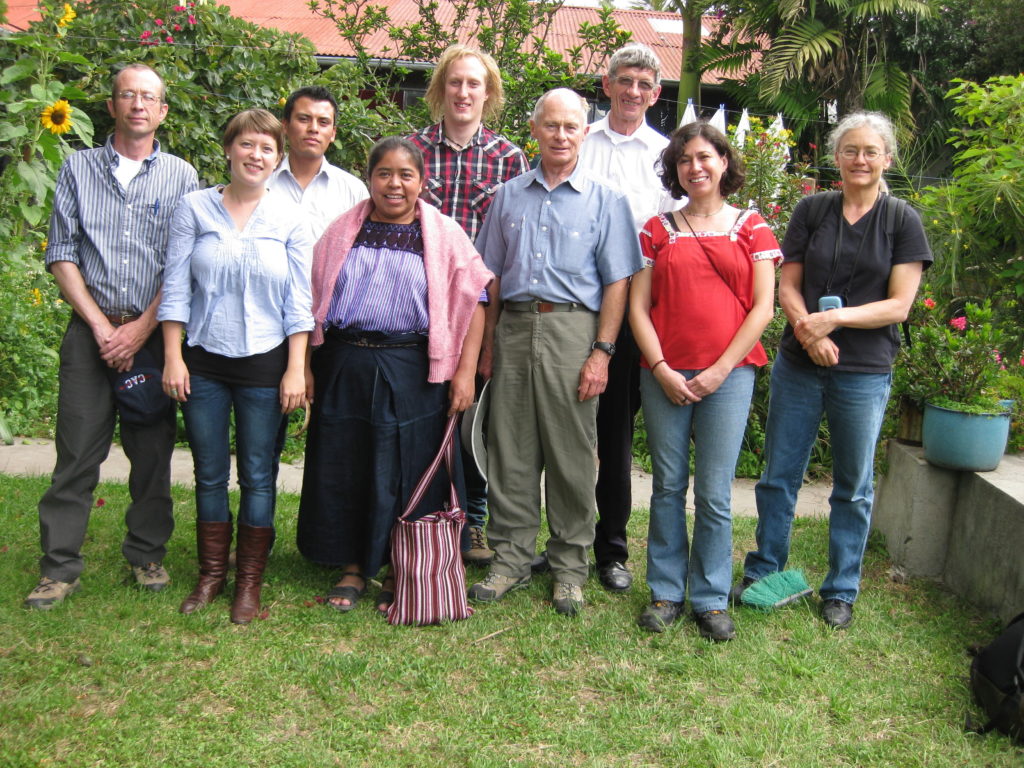
- 2011: UUSC funds livelihood training on the Kenya-Uganda border to help at-risk youth avoid human trafficking.
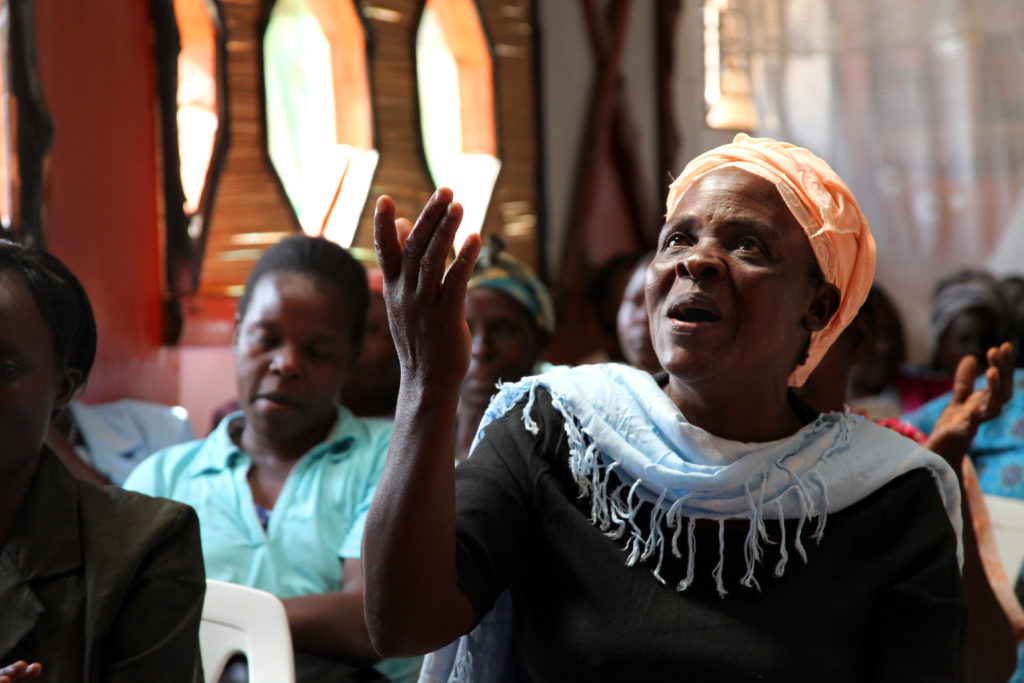
- 2012: UUSC works with on the ground partners in California to pass Human Right to Water legislation.
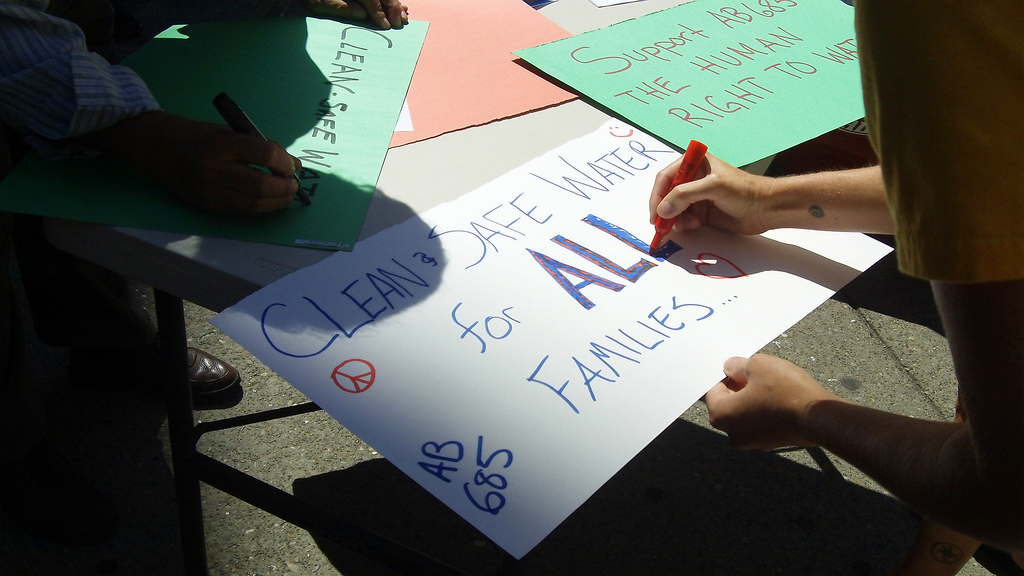
- 2012: UUSC pressures international mining giant Goldcorp until it commits $27 million to reclamation at a gold mine that contaminated the water supply indigenous populations in Guatemala.

- 2012: UUSC engages religious and community leaders in Darfur to reduce domestic and gender-based violence by drawing on Islamic values.
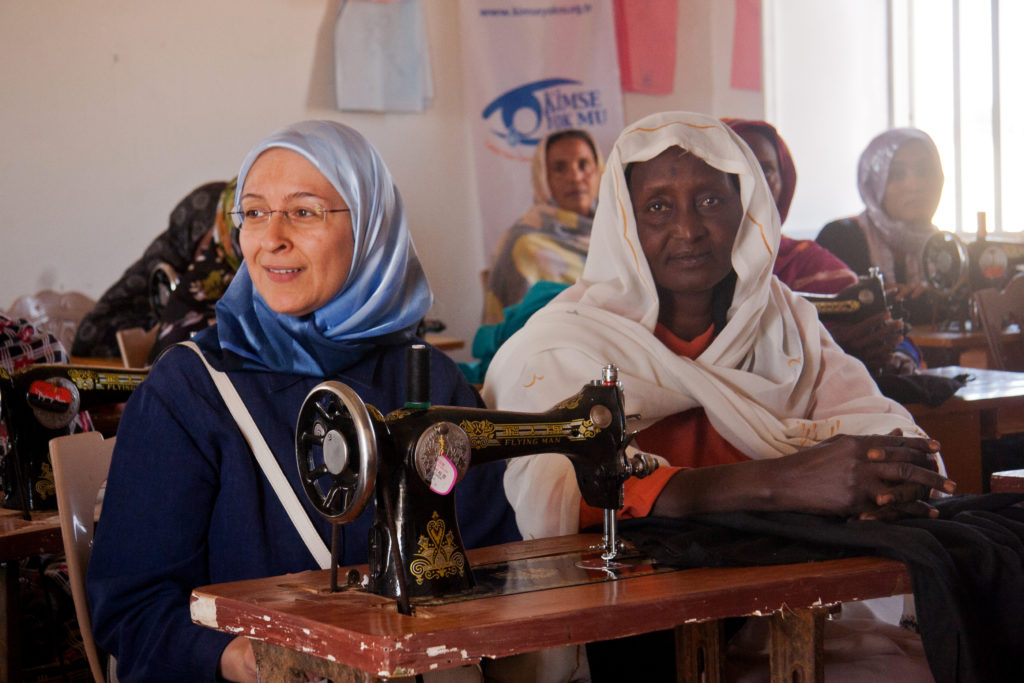
- 2012: In partnership with the UUA, the UU College of Social Justice is launched to help UUs deepen and sustain the work of justice in their congregations and communities.
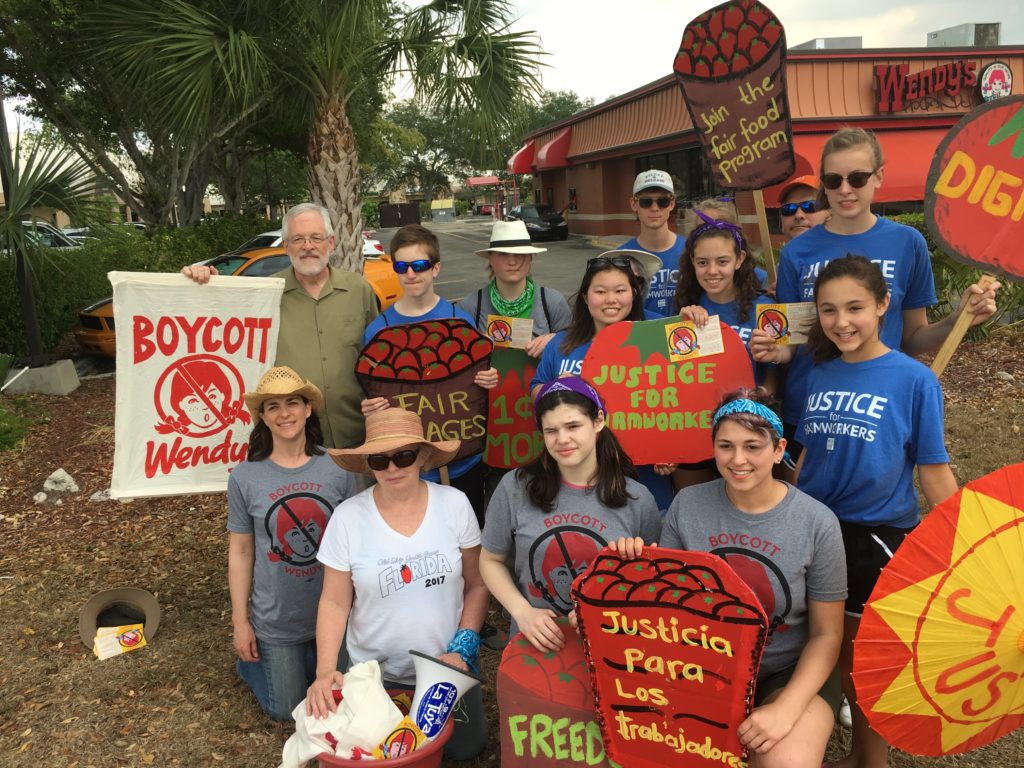
- 2013: UUSC helps convict former Guatemalan dictator Gen. Efrain Rios Montt by supporting forensic research into genocide committed against the Maya people under his dictatorship.
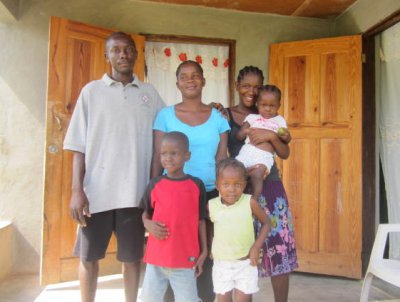
- 2013: UUSC launches a project to improve wages and working conditions of restaurant workers.
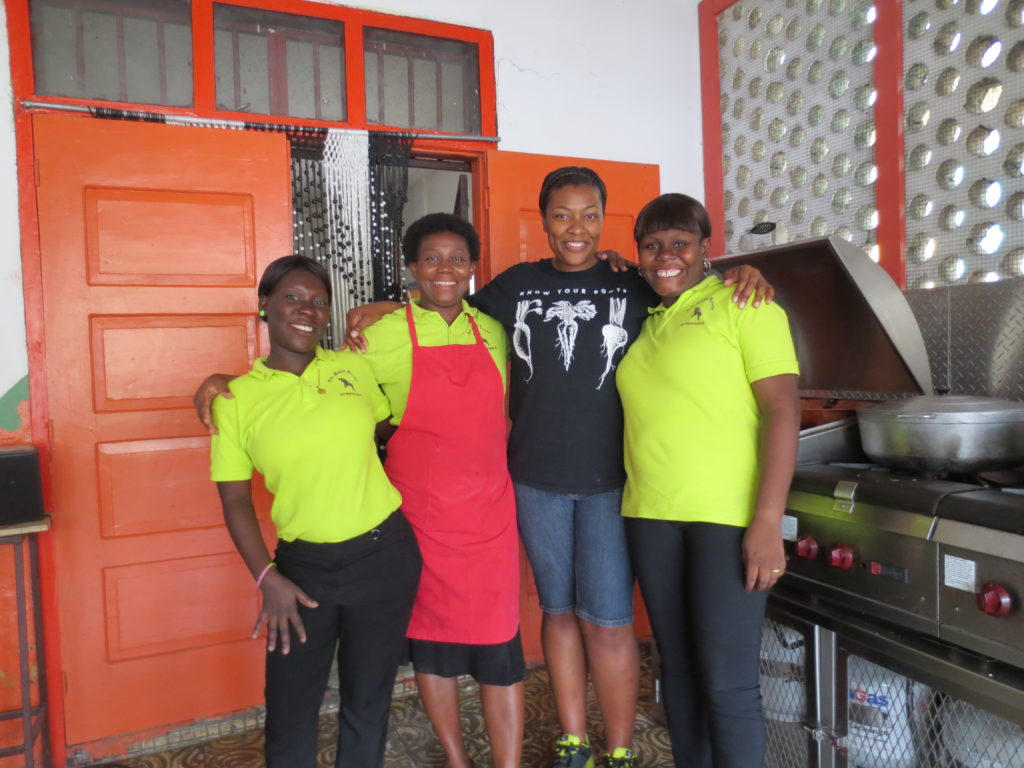
- 2014: UUSC demands that a Senate report on the CIA’s use of torture is released to the public.

- 2014: UUSC begins a program to help women in immigration detention adequately access their legal rights and find the support they need.
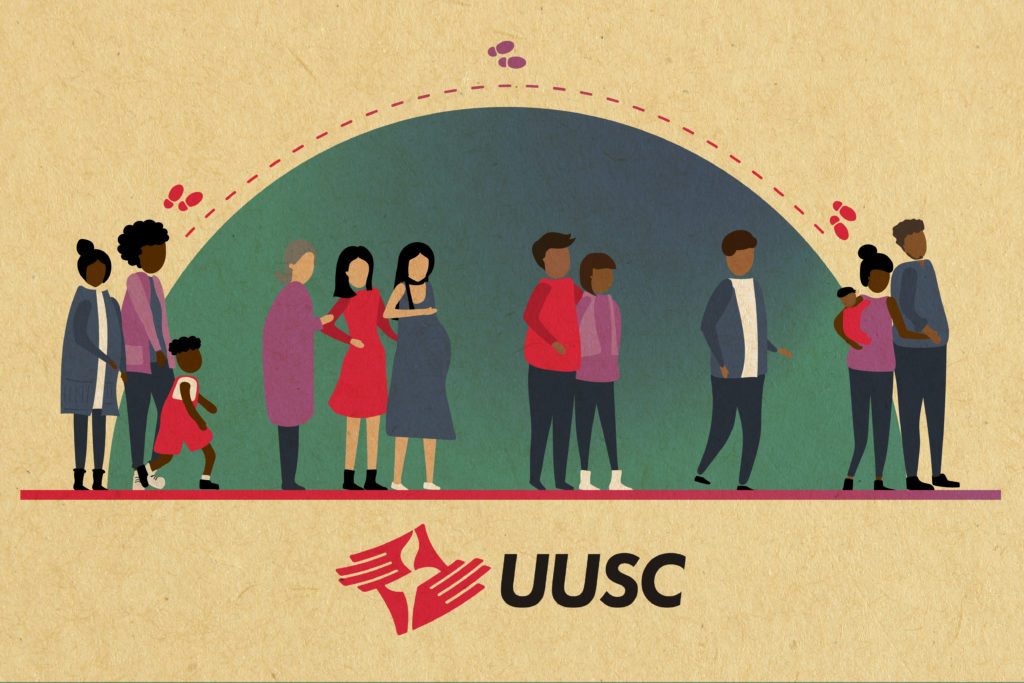
- 2015: UUSC sends its first round of Spanish-speaking and legal UU College of Social Justice volunteers to help our partner, RAICES, ensure that women and children held in Texas immigration detention receive legal advice and representation.
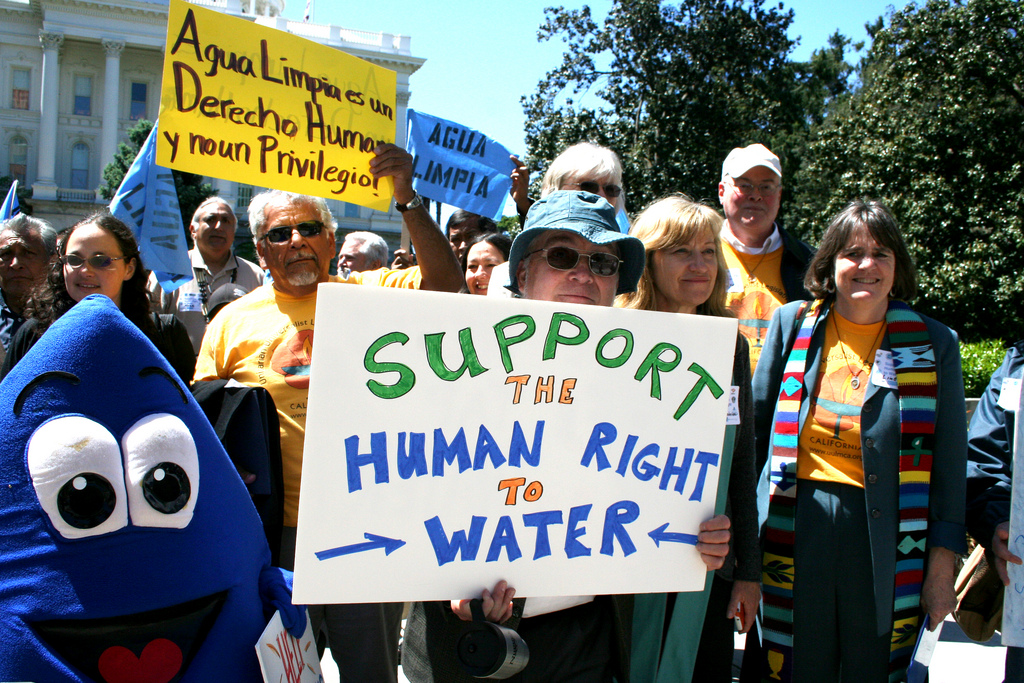
- 2016: UUSC publishes Waiting for Refuge: Benefits and Challenges of the Central American Minors In-Country Refugee Processing Program (CAM), a research report that reveals weaknesses in U.S. policy toward asylum-seekers at our borders.

- 2017: UUSC holds a 24-hour vigil in front of the White House to support DREAM action, a 22-day-long effort to defend the Deferred Action for Childhood Arrivals program and Temporary Protect Status.
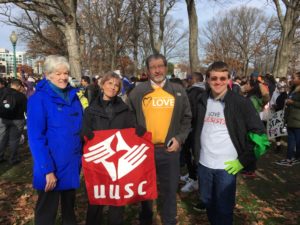
- 2018: UUSC participates in a delegation of faith leaders to support Honduran human rights defenders mobilizing against the fraudulent November 2017 presidential elections.
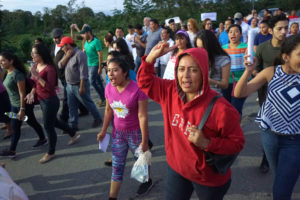
- 2019: Following advocacy and direct action by UUSC and its allies, Dr. Scott Warren of No More Deaths is acquitted of all charges. The U.S. government had sought to prosecute Dr. Warren and other No More Deaths volunteers for providing life-saving humanitarian aid to migrants.
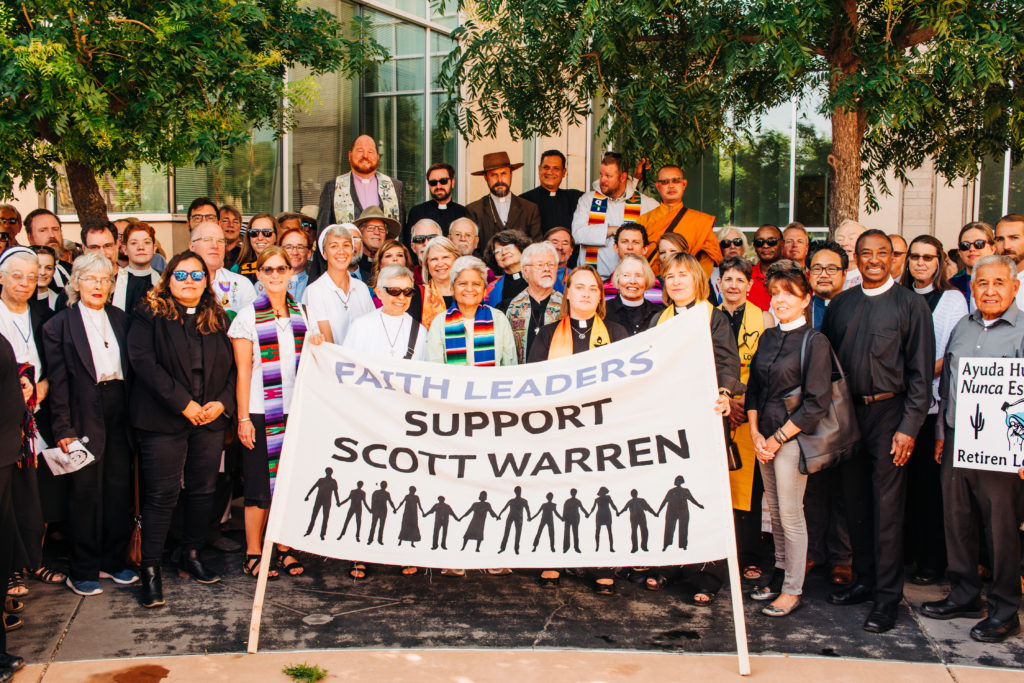
- 2020: UUSC commemorates 25 years of human rights work in Burma.
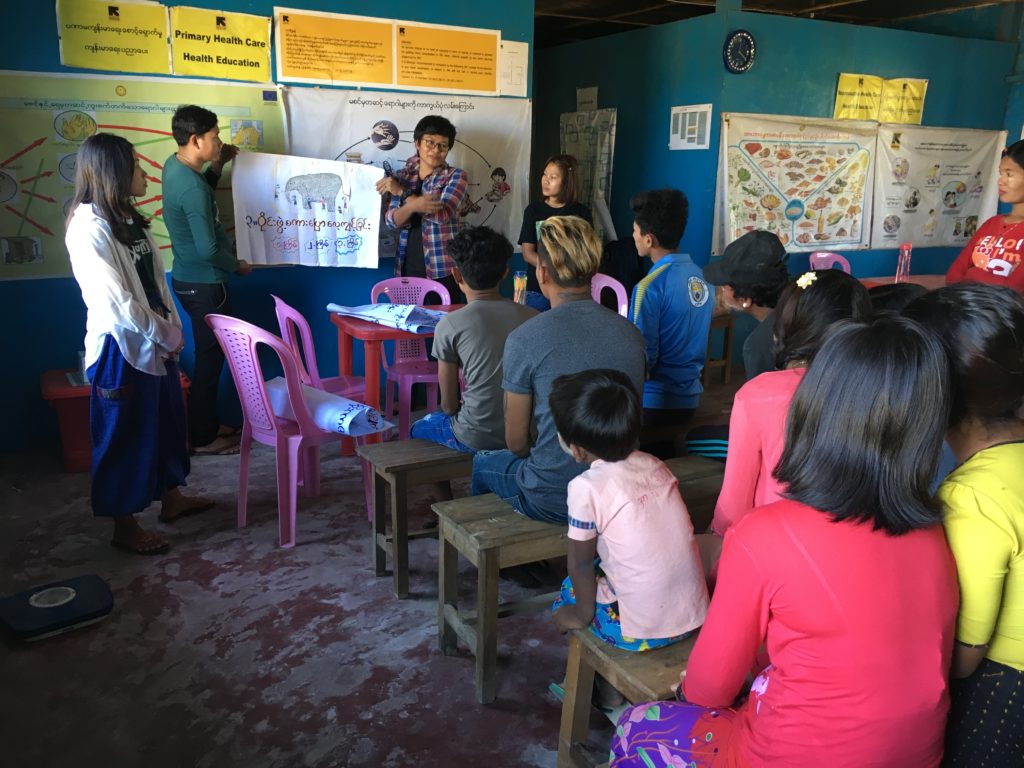
- 2020: UUSC and partners file first-of-its-kind complaint to the UN Special Rapporteur on the Rights of Indigenous Peoples, documenting the U.S. government’s systematic violation of the rights of Tribal Nations displaced by climate change.
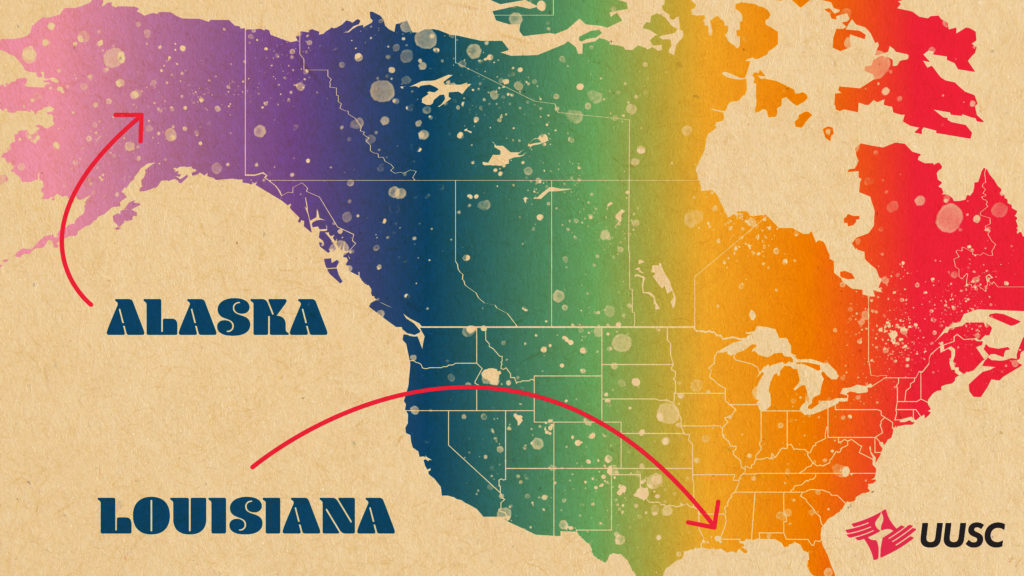
- 2021: UUSC mobilizes staff and ≈2,000 faith activists in solidarity with the Indigenous struggle to shut down the Line 3 pipeline extension—a tar sands oil pipeline in the upper Midwest that violates Indigenous treaty rights.
